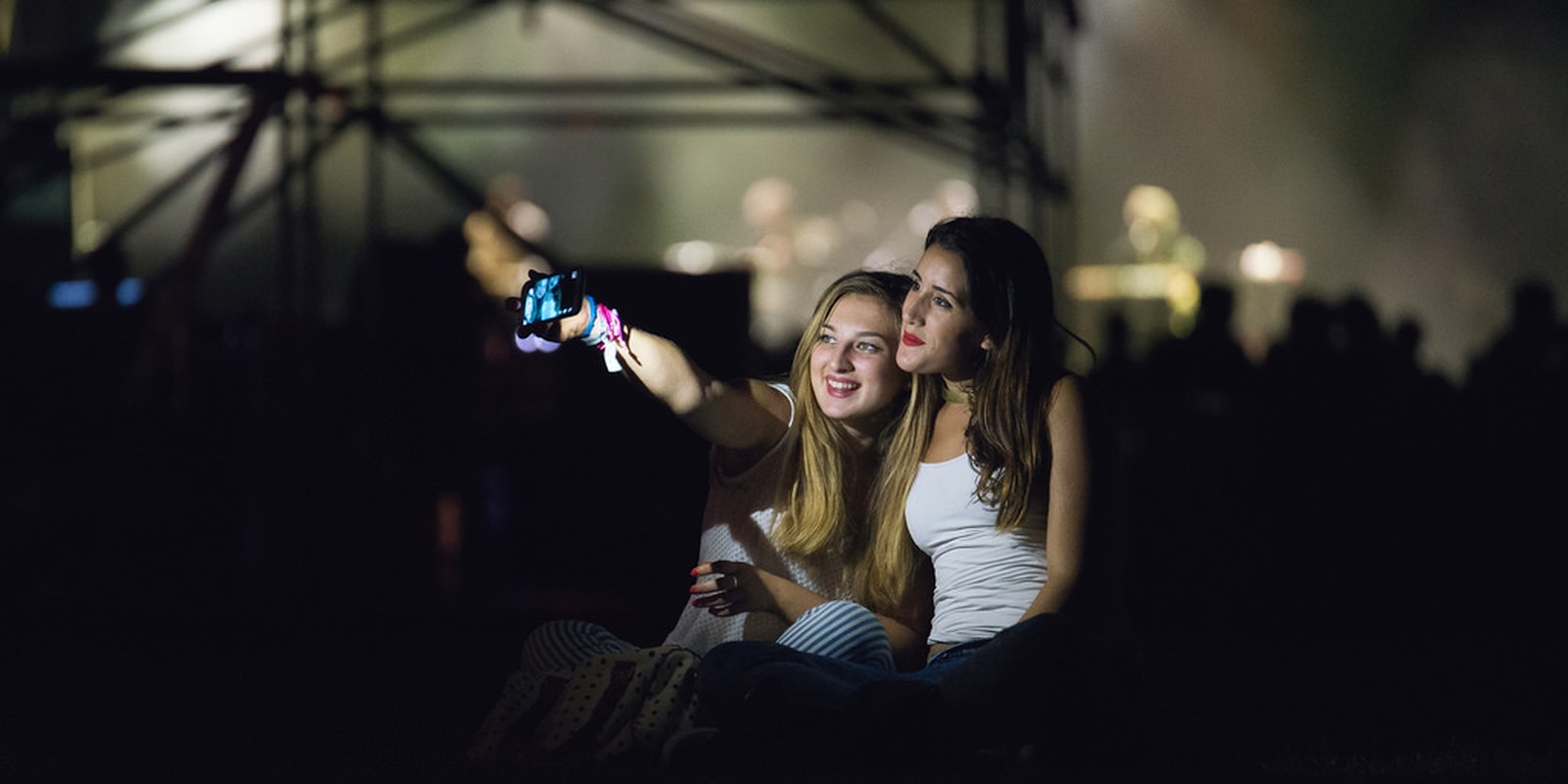Earlier this summer I took a selfie on the beach. After I adjusted the photo and prepared to publish it on Instagram, my boyfriend said, “That doesn’t even look like you, Levi.” I argued that I only added a filter, which might have been a bit of a stretch. So I smudged all my wrinkles, changed my eye color, and plumped up my lips. Big deal! It’s just a selfie, right?
In retrospect, he was right. My selfie was completely unrecognizable and looked a bit like a caricature captured on the Santa Monica Pier. My obsession with perfection pushed me to create an aspirational representation of myself that bordered on bizarre.
They’re supposed to be casual and improvised, but some of these snapshots are elaborately staged, shot with professional equipment, and then edited like a cover photo. I take selfies to share my experiences with my friends and followers. Yet somehow the authenticity of my appearance escapes many of my own photos.
We’re infatuated with taking pictures of ourselves. From Tom Daley to James Franco, everyone takes selfies. Facebook, Instagram, and front-facing cameras on smartphones enabled just about anyone to perfect the art of sharing self-portraits, which led to mobile editing applications, which then yielded the magazine-worthy selfie. These days, you can take a photo of yourself and edit every little hair, blemish, and imperfection within seconds before sharing it with your network.
Some estimate that more than 1 million selfies are posted on social media each day, and that 36 percent of people admit to altering them. That’s a lot of faux photos.
As the selfie phenomenon amplifies, our focus transitions from taking photos to creating self-inspired works of art. From filtering to smudging, some of us edit our selfies to near-flawlessness—but why?
We modify our photos in an effort to be the best we can be and to compete with the photoshopped beauty of the stars. The problem is that we start to consider our perfect selves to be our only selves. In reality, altering our photos can cause self-esteem issues and set unrealistic expectations for other people.
Some psychiatrists believe that taking selfies is linked to narcissism, body dysmorphic disorder, and mental illness. To support this, researchers at Opinium found that 34 percent of men modify their lips, eyes, skin color, or physique before publishing a pic. With all the modifications, can we really call them selfies? No.
After reviewing my own stream of edited selfies, I also wondered how these edited pics affect LGBT youth. After all, many experts think selfies cause confidence issues in young people and promote cyber-bullying—and that’s the last thing LGBT people need.
While growing up, many LGBT people have trouble developing self-esteem. The plague of edited selfies will cause more obstacles for our youth and could hurt their self-image. When people post heavily edited selfies, they set impractical expectations for their future photos. Is damaging the self-image of a generation worth a “Like?” I don’t think so.
Comparing our real selves to our “perfected selves” is self-deceptive. It creates a never-ending cycle of edits that force us to hide behind our photos in an effort to fit in within our communities.
For LGBT youth, being accepted by peers is critical, and part of that acceptance is attached to our digital selves. According to the Gay, Lesbian, and Straight Education Network, the suicide risk for gay youth is considerably higher than that of the general population. And one of the main causes of suicidal thoughts is low-self esteem.
To end the overedited epidemic, we need to step away from filters and retouching and accept ourselves—our real selves. No one is as “perfect” as their edited version, and who would want to be? That’s boring! Celebs like James Franco and Zachary Quinto post unedited selfies regularly—so, why not you?
To fight the trend of posting edited, filtered and Photoshopped selfies, I challenge to you take a selfie—a real selfie.
Right now.
Go ahead.
Did you take one?
Now post your selfie on Twitter, Facebook, or Instagram with the hashtag #JustMe and let’s change the way we think about selfies.
This article was originally featured on The Advocate and reposted with permission.
Photo via N4n0/Flickr (CC BY 2.0)


